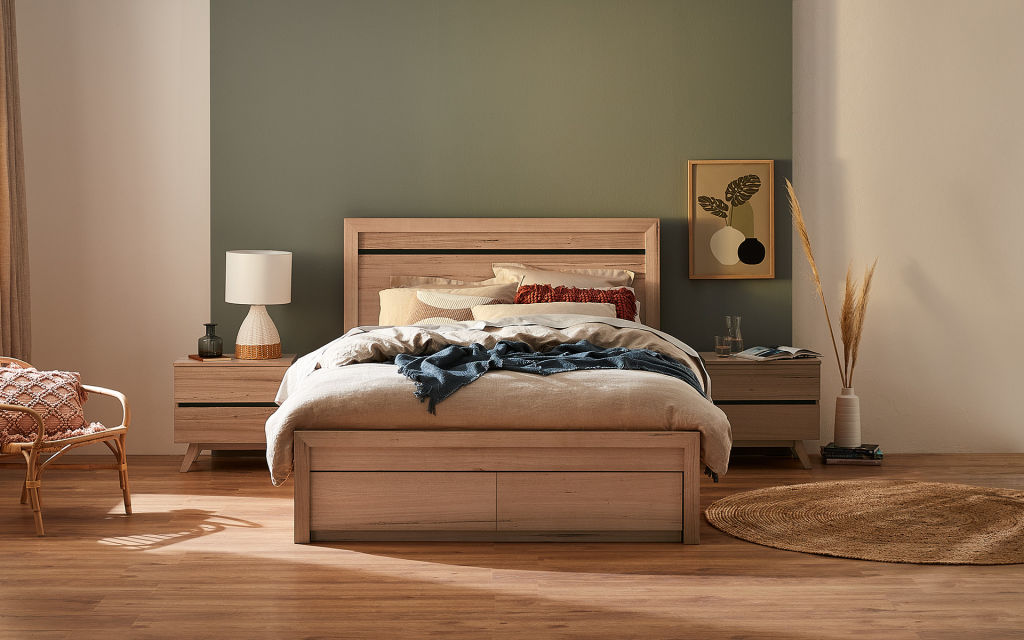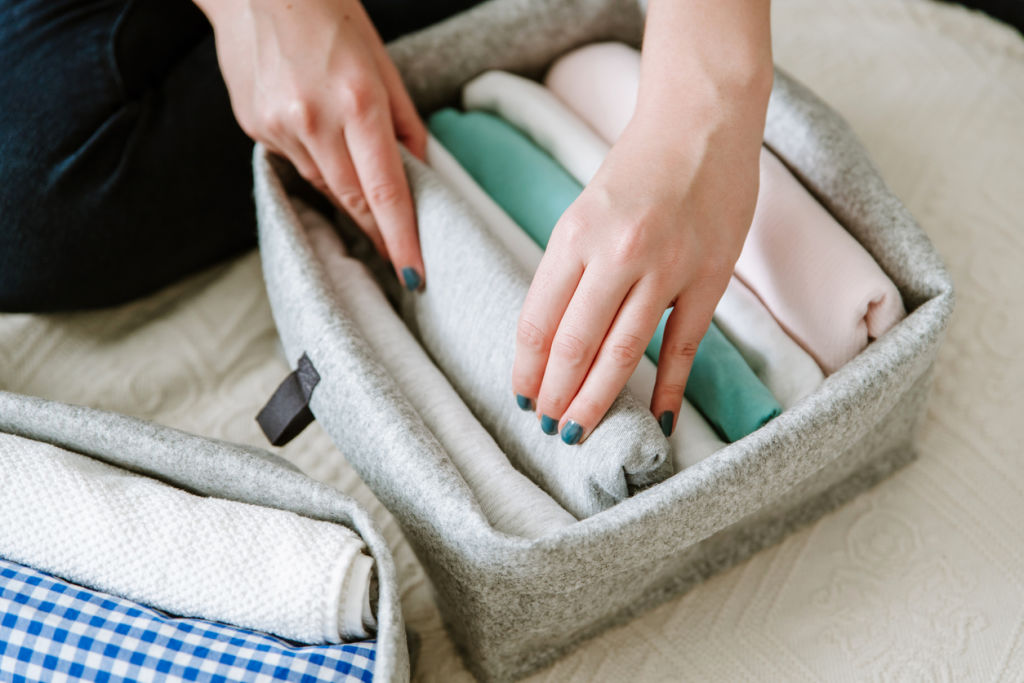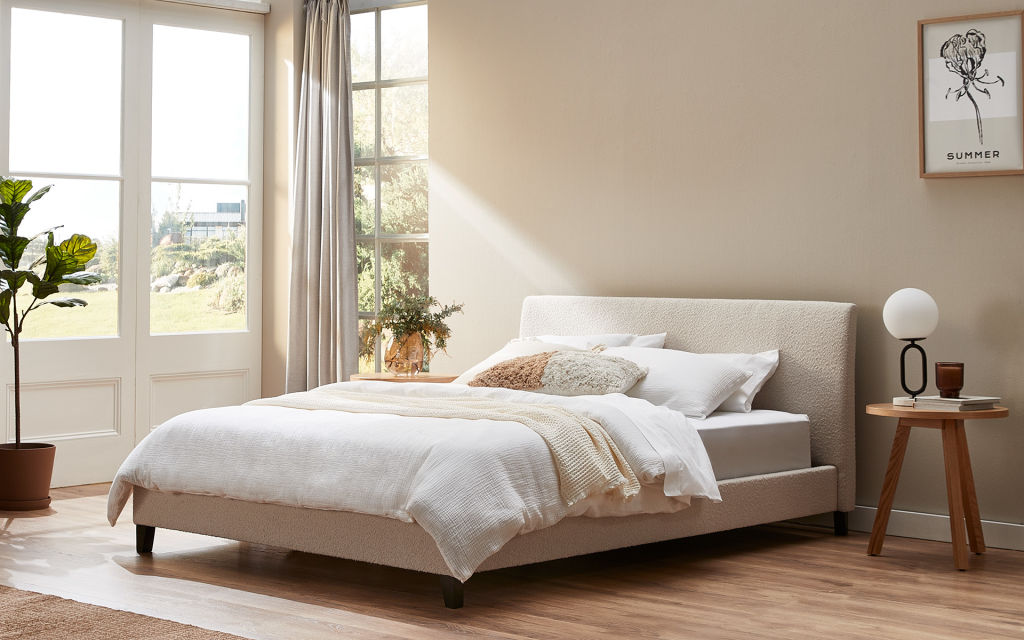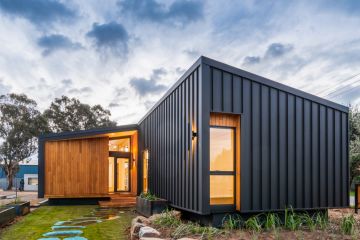Why experts agree this is the most important room in your house – and how to get it right

We all know that getting a good night’s sleep is critical to our overall wellbeing. In fact, poor sleep can seriously affect a person’s quality of life and increase the risk of developing chronic health conditions.
It’s for this reason that designers agree the bedroom is one of the most important rooms in the house for health and happiness.
“There is no other room in your home that unconsciously has an effect on our waking life, sleep patterns, and general wellbeing,” says interior stylist and founder of T.House Tina Nettlefold. “This, in turn, directly impacts our emotional state and daily productivity.”
With summer just around the corner, now is the time to reassess your bedroom and set yourself up for an optimum night’s sleep, every night.
Feng shui in your bedroom
A thoughtfully arranged bedroom created following feng shui principles is said to promote balance and calming energy.
“This balance enhances relaxation, nurtures relationships, and leads to more restorative sleep. Simple design choices in the layout and decor of a bedroom influence your mood, psychology and overall state of health,” says Jane Langof of Feng Shui Concepts.

This ancient Chinese traditional practice extends to upholding good daily habits (such as making the bed and opening the blinds), using appropriate materials, and optimum bed placement.
“The best bed position from a feng shui view is when your bedhead is placed along a solid wall (without windows), diagonally across from the door. This position harnesses energy that is settled and contained, and creates a sense of security and protection,” says Langof.
“Avoid placing your bed under low-sloping ceilings, directly beneath overhead beams, or in line with the door. If you cannot move your bed, close the door while sleeping.”
Langof also advises against visible mirrors, particularly in bedrooms shared by couples.
“Mirrors in bedrooms raise energy levels in a space that should otherwise be restful, and they also symbolically reflect and amplify unresolved issues between a couple,” she says.
“If possible, reposition mirrors so they don’t reflect the bed, ensuring the room remains a tranquil space. Mirrors on the ceiling are not a good idea!”
Invest in quality
The three essential features of a restful bedroom are a quality bed, effective blinds, and ample storage.
“Investing in a high-quality mattress is vital, complemented by a mattress protector and pillows tailored to your specific sleeping needs,” says Nettlefold.
“Choose a durable duvet that can regulate temperature, keeping you comfortable in both summer and winter. Also, consider incorporating a headboard for added style and comfort.”
Blinds, curtains, and storage space also are important to facilitate a cool and uncluttered room.

“Good storage ensures a clutter-free space, which again supports the function of a calm space for a healthy sleep pattern,” says Trish Khoury, founding director of Grace Interior Designs.
“Window treatments are important for the bedroom’s primary function of sleep because they can control light and the temperature of a room.”
Decorate with natural materials and colours
Style your bedroom with a mostly natural colour and material palette to inspire warmth and good health.
Materials such as linen, bamboo, cotton, and timber can all be easily introduced across your bed linen, soft furnishings, and bed frame.

“Opt out of those that don’t let the body breathe, like certain synthetics. They can cause discomfort, potentially disrupting sleep,” says Langof.
For floors, avoid cold surfaces such as tiles and stone outside very hot climates.
“I generally prefer carpet for the bedroom,” says Nettlefold. “A wool rug creates a warm, inviting touch whereas silk is another great choice and rather invokes a feeling of luxury and opulence.”
Complement soft materials with soothing colours found in nature rather than saturated shades or printed wallpaper. Soft blues, greens, greys, natural whites, and creams are all colours known to have a calming effect.
“It’s vital to establish an atmosphere that exudes relaxation and calm, fostering an oasis of peace and tranquillity, while diminishing the potential for overstimulation,” says Nettlefold.
Ditch the distractions
The bedroom is primarily a place for sleep, so keep this front of mind when furnishing and styling.
“My advice for a more restful space is to keep things minimal. Focus on the bed, bedside tables, good natural bedding, and the light,” says Khoury.
“Don’t try to do too much to your bedroom or worry about the number and layout of cushions, because as we know, sometimes less is more.”
Save the trinkets and electronics for your home’s living area, and keep work and exercise out of the bedroom, to support a quality sleep night after night.
This article is brought to you by Snooze – make your room truly amazing.
We recommend
We thought you might like
States
Capital Cities
Capital Cities - Rentals
Popular Areas
Allhomes
More







